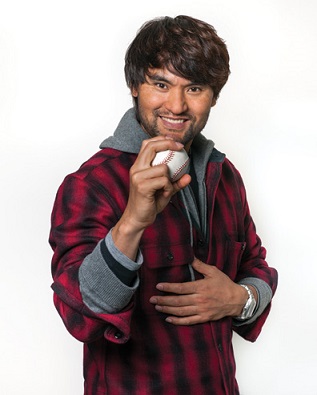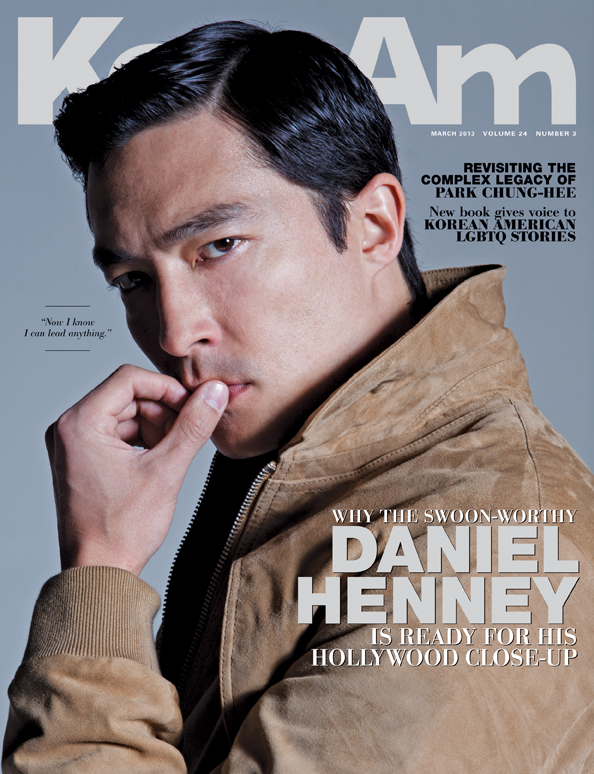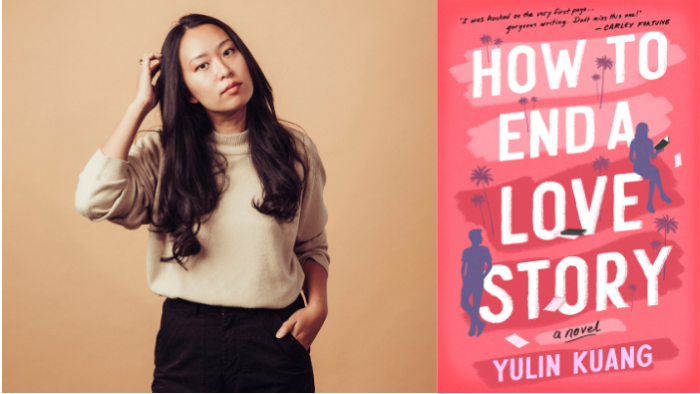The newly retired pitcher reflects on his major league career and the suppport of Korean American fans, during a recent visit to Los Angeles.
story by STEVE HAN
photographs by MARK EDWARD HARRIS
Since retiring from professional baseball last November, Chan Ho Park has had plenty of chances to speak to the press about why he’s leaving the game he loves.
Park already revealed that he’ll pursue a career in baseball administration, possibly with the San Diego Padres, a franchise owned by Peter O’Malley, the ex-owner of the Los Angeles Dodgers who made him Korea’s first-ever big leaguer in 1994.
The 40-year-old also announced that he’ll be Korean television network JTBC’s color commentator at the upcoming World Baseball Classic, where Team Korea will look to win its first title.
But one thing the hard-throwing pitcher hadn’t yet had a chance to do until sitting down with KoreAm Journal in February was bid farewell to the Korean American community. Park chatted with KoreAm in Los Angeles, and, over a Korean barbecue lunch intermittently interrupted by fans, talked about his “special” relationship with those who have been behind him throughout his roller coaster career in the major leagues.
You’ve achieved a lot in the major leagues, but with a lot of ups and downs. Looking back at your career, what are you most proud of?
I’m proud that I’ve played for as long as I did. There were a lot of obstacles. The early years in the minor leagues and struggling in Texas later on … it was tough. I’ve been at a crossroads so many times, and thought about quitting and going back to Korea. But I stayed patient and endured everything. That’s what makes me proud.
Would it be safe to assume that your worst memory in the major leagues was allowing Fernando Tatis [of the St. Louis Cardinals] to hit two grand slams off you in one inning?
When that happened, it hurt so much. I wanted to kill myself. [Laughs.] I wanted to drop everyone who tried to talk to me after that game. That’s how I really felt. But now, I laugh and say, “It’s pretty neat to see my name in a record-breaking milestone.” Not many people know that Tatis and I played together in the minor leagues, when we played for the Mets. So now, every time I talk about his grand slams against me, I smile. I smile, thinking about a teammate who went through difficult times with me down in the minors.
What helped you persevere through adversity?
People who can accept losing are the ones who can last longer, just like me. But those who consider winning as their only option aren’t capable of recovering when they inevitably lose at one point. You have to be prepared to lose if you want to win. That’s how you get ready to become a winner in the end. The only reason I’ve been able to play baseball for as long as I did was because I learned from losing.
You became the center of attention among Korean Americans immediately after signing with the Dodgers in 1994. And the amount of attention you got only grew from there. How did you deal with the pressure?
I never thought of it as pressure. I often felt lonely here, but the Korean American fans were the ones who stuck with me. What really hit me as pressure was how American fans viewed me as someone who came to the major leagues to represent Korea.
Can you elaborate on that?
Obviously, being Korean is something I’ve always been proud of, but it bothered me when the general public viewed me as Korean, and not Chan Ho Park. For instance, when I made a mistake in a game or didn’t pitch well, a lot of Americans bad-mouthed not me, but Korea. That infuriated me.
Was there anything in particular that you struggled to deal with?
Some Americans created this competition between me and Hideo Nomo (Chan Ho’s former Dodger teammate and Japan’s star pitcher), and talked as if Korea was a poor little country compared to Japan. That angered me. I’ve always believed that my country was great and had this tremendous pride for being Korean, but it was hard for me to accept how Korea was merely some listless country to some Americans at the time.
Do you feel like your success in the major leagues helped change Korea’s image among American baseball fans?
In the end, it only strengthened my pride as a Korean. It motivated me to set a goal. I wanted to change their views, not by talking, but with my skills on the baseball field. That became my ultimate goal.
How did Korean baseball change before and after you made your mark in the major leagues?
Before the Dodgers signed me, professional baseball in Korea was huge. But its popularity started to fade after I came here, because me coming here gave people access to better baseball than the ones they were accustomed to watching. The quality of baseball between the major leagues and the Korean league was evident, obviously. But things changed now because the kids who watched Major League Baseball, which became accessible on television in Korea after I joined the Dodgers, grew up watching the best baseball games in the world. They’ve taken what they’ve watched growing up and applied it to their own games, and later became stars in the Korean league. You could see how much Korean baseball improved at international competitions like the Olympics and the World Baseball Classic.
How far behind is Korean baseball from the major leagues?
I do have doubts on how much Korean baseball improved off the field, not on it. I look at how the game is being managed, how the players are being treated, and also what’s lacking between the teams and the fans, and see that there’s still something missing. People in Korean baseball have to realize that when fans go to the games, they need to be given a bigger value than simply seeing their favorite teams win. In sports, there are values bigger than just winning or losing. It’s something that needs to be established culturally.
Cho Sung-min, a former baseball player and teammate of yours back in the ’90s (also ex-husband of Korean actress Choi Jin-sil who committed suicide in 2008), took his own life in January. When both of you were in college, Cho was considered a bigger prospect. It has also been reported that he chose to play professional baseball in Japan, though he had offers from the major leagues, because he didn’t want to follow in your footsteps. What went through your mind when you heard the news of his death?
Sung-min was a friend of mine. It was a huge shock. It’s a shame that his life had to end that way. Frankly, we weren’t the closest of friends, but what upsets me is the fact that he and I never had a chance to talk about the difficulties he was facing. I’ve always strived to give hope to all my fans, but I couldn’t do that with a colleague of mine whom I should’ve been very close with. I was disappointed in myself when I realized that.
How do you want to be remembered in the Korean American community?
I don’t have a preference on how I want to be remembered. I actually prefer being forgotten. [Laughs.] But I realize that for people who enjoyed watching me play, it’s impossible for them to forget about me because there’s also no way I’ll ever forget about them. I played at a time when Korea as a nation and Korean Americans as immigrants were struggling in so many aspects, both economically and culturally. Through me, they were consoled. They saw this hope that Koreans can make it. So in a sense, I’d like for them to remember me as a friend who lived a generation of struggle and hope together. That’s what makes our relationship special. We faced challenges and adversity together as one.
This article was published in the March 2013 issue of KoreAm. Subscribe today! To purchase a single issue copy of the March issue, click the “Buy Now” button below. (U.S. customers only. Expect delivery in 5-7 business days).






